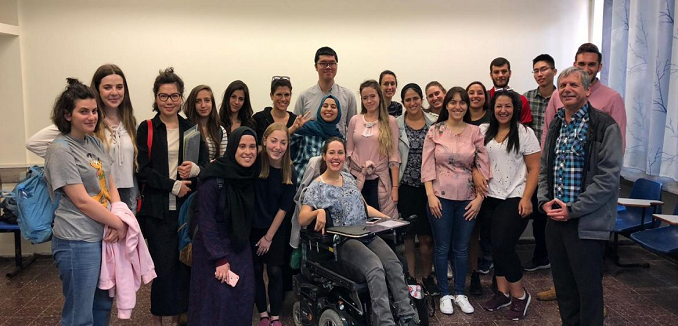A Jew, a Muslim, and a Christian walk into a classroom. No, this is not the start of a joke, but a most accurate description of a unique course on interreligious dialogue at Israel’s Bar-Ilan University.
“The class as a whole is meant as an opportunity for Jewish and Arab students at Bar-Ilan University to get an appreciation of each other’s cultures and see the commonalities in religious traditions as a basis for dialogue,” says course lecturer Ben Mollov.
“They’re gaining the personal perspective of each other and that leads to a type of relationship building and relationship transformation.”
Mollov, a lecturer in political science and conflict management at Bar-Ilan, has been involved in Arab-Jewish dialogue from a religious perspective for the past 20-odd years. And while he’s a veteran enthusiast of this sort of dialogue, the current course emerged as an initiative of his students.
One of these students is Sariba Feinstein from the United States, a double major in communications and political science at Bar-Ilan. Introduced to the concept of interreligious dialogue in class last year, she teamed up with friend and classmate Fatima Amer to set up the Bar-Ilan chapter of the Interfaith Encounter Association, a nonprofit that fosters dialogue among religious groups.
What started out as small monthly meetings developed into a highly popular, full-fledged academic course in the university’s international program. The pillars of the course, according to Mollov, are mutual respect, self-respect and mutual enrichment.
“I see this effort as something that’s meant to promote better relations between Jews and Arabs as a whole at Bar-Ilan but also having a larger message of what can be achieved when you take this approach,” he says.
The course is mostly centered on student presentations of religious themes such as pilgrimages, prophets, the role of women, and the holiday cycle in Judaism, Islam and Christianity.
“We avoid political issues because we’re taking a different approach entirely,” Mollov says.
[Photo: Israel21c]




